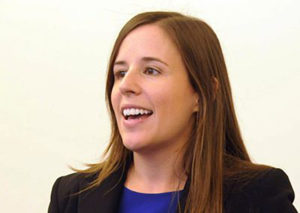While this week’s U.S. Supreme Court decision siding 7-2 with bakery owner Jack Phillips in Masterpiece Cakeshop v. Colorado Civil Rights Commission was “far from explosive,” it still sends important signals on how such cases will be handled in the future, said a legal scholar at Washington University in St. Louis.
“While less than satisfying, Masterpiece sends two important signals,” said Elizabeth Sepper, an expert on public accommodation law and religious liberty, who co-authored an amicus brief of public accommodation law scholars in support of the commission in this case.

Sepper blogged about the decision for SCOTUSblog.
First, the advance of economic libertarianism within religious liberty doctrine is faltering, Sepper wrote.
“Justice Anthony Kennedy, for a majority of the court, rejected a market-oriented view of antidiscrimination law and reaffirmed dignity as the central justification for equality in public,” she wrote. “The justices acknowledged that, for same-sex couples, there is more at stake than cake.”
Second, the ideal of a moralized marketplace where businesses express and impose religious beliefs is gaining ground.
“As in Burwell v. Hobby Lobby Stores Inc., the Masterpiece court entered the fray over profit and piety, only to side with the business,” Sepper wrote.
“After Masterpiece, human-rights commissions would be well advised to handle religious objectors with kid gloves — to avoid ‘undue disrespect’ for their beliefs,” Sepper wrote. “They should also avoid ‘subjecting gay persons to indignities’ in the market. To do that, as the majority hints, requires applying public accommodation law to religious objectors.”
To read the full piece, visit SCOTUSblog. Sepper is available for media interviews at esepper@wustl.edu.